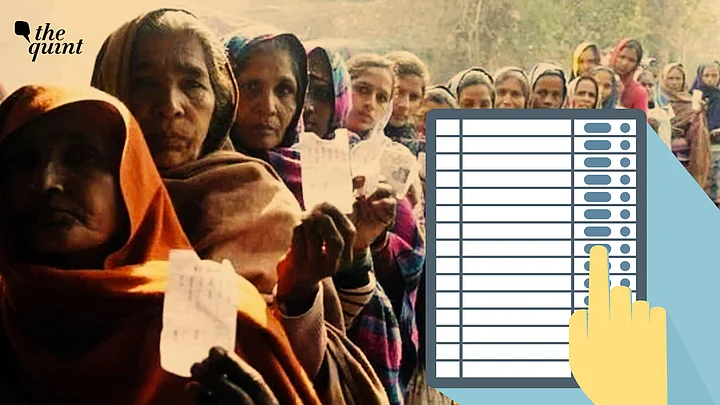Three states in the Northeast of the country have been allotted two different days for holding Assembly elections next month. The Election Commission of India (ECI) deemed it impossible to hold simultaneous elections for these three states which have a combined population of less than one crore—around the same as the New Delhi district (2011 census).
Just before announcing the upcoming polls, the ECI inexplicably digressed and brought another issue into the political discourse: Multi-Constituency Remote Voting Machines or RVMs which would help migrants vote from remote locations.
One important issue needs the ECI’s immediate attention—when those in high Constitutional office deliberately bypass the Model Code of Conduct (MCC) by making speeches in one area which are telecast live in places where the ‘silent period’ is in force. Instead, the ECI in its wisdom, chose to circulate a letter on the institutionalisation of RVMs to solicit the views of political parties in the first two months of 2023.
There is no doubt that the responsibility of enabling every citizen above 18 to exercise their right to vote lies with the ECI. However, any decision to jump into this uncharted territory will cause more harm than good.
Is Remote Voting System a Viable Alternative?
Normally, enrollment on the voters’ list takes place from one's address, which is usually the regular place of residence of the voter. RVM is expected to enable migrant voters to vote for elections in their home constituency from their current place of residence. This would enable citizens away from their home constituencies due to work, education or marriage—to cast their vote on voting day.
According to the ECI, around 30 crore (as much as 30%) voters do not vote owing to several reasons. The proposed new procedure is being propagated as a step towards removing barriers to bring down this number.
Let me point out a few loopholes. For one, there is lack of a central database for migrants. The official census figures of 2011, reveal that the total number of inter-state migrant workers in the country was over four crore. The Union Government does not have updated data on migrants and the next Census has been delayed. Without a reliable database on migrants, how will the ECI effectively use these RVMs to target migrant voters?
There are more black holes in the proposal:
Model Code of Conduct
A key maxim of fair and free voting is the observation of the Model Code of Conduct(MCC). How will the ECI ensure that there are no MCC violations if RVMs are used in places outside the home state or constituency? My colleague Abhishek Banerjee, Member of Parliament and the National General Secretary of the All India Trinamool Congress, wrote to the ECI last week pointing out that there will be chances of manipulation of voters if polling takes place in states where elections have not been declared. In these states, implementation of MCC poses a serious problem.
Chances of misuse
RVMs can be misused in the same way that EVMs have seen security lapses. Then there is the possibility of using coercive measures by the ruling parties of other states where elections have not been declared. Also, who would be responsible for the security of RVMs? The state government where elections are not taking place? Or the ECI? Fuzzy logic.
We all know stories of EVM machines being discovered from homes and cars of political leaders.
Low voter turnout
There are many reasons for low voter turnout, and it is impossible for RVMs to solve all these issues. There is no evidence to back the claim that RVMs can effectively increase turnout. The ECI needs to study the reasons for low voter turnout and then come up with a well-rounded approach to resolve this.
Some suggestions: create powerful communication to change the indifferent attitudes of sections of the voting population, provide improved facilities for smooth voting, ensure requisite infrastructure for specially-abled persons, and, above all, be seen to be neutral.
‘Unfair for Migrants’
Inimical for smaller parties
There is a strong possibility that smaller parties would be affected. The bigger parties are in a better position to run campaigns targeting migrant voters outside their constituencies or states. Smaller parties do not have the capacity to do this, possibly infringing on the tenet of free and fair polls.
By its own admission, the ECI also has to overcome administrative, legal, and technological issues before making the RVM system a foolproof one. This is just not happening. Not now. Not in 2033.
(The writer is Member of Parliament and Leader, All India Trinamool Congress Parliamentary Party (Rajya Sabha). Additional research by Ankita Dinkar. This is an opinion piece and the views expressed above are the author’s own. The Quint neither endorses nor is responsible for the same.)
(At The Quint, we question everything. Play an active role in shaping our journalism by becoming a member today.)
